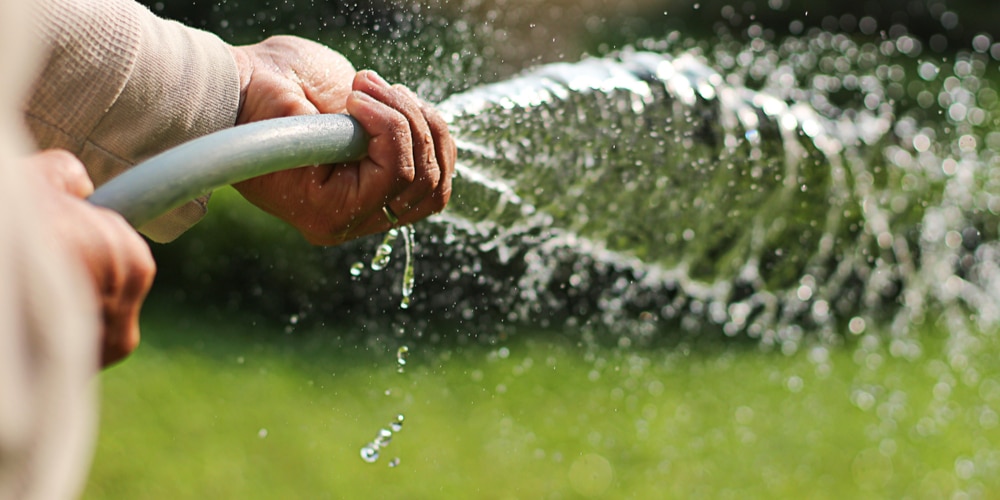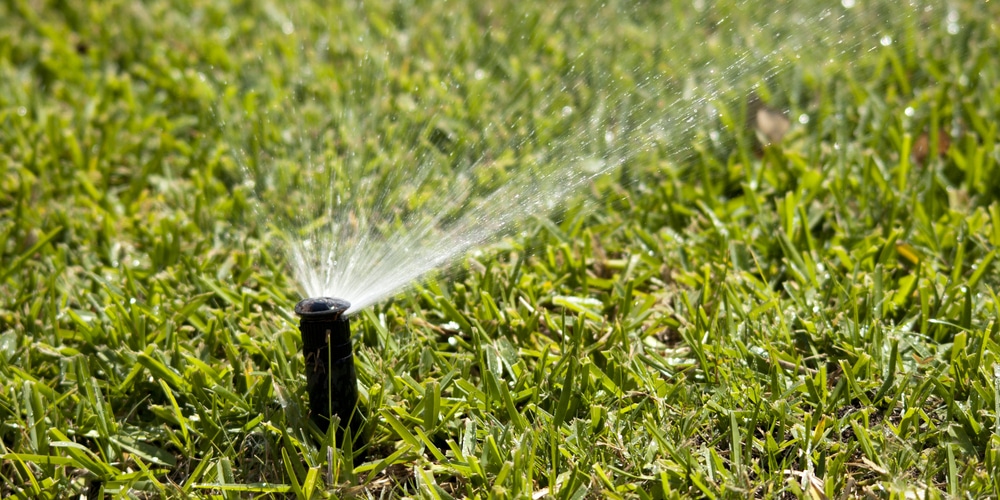If you have a lush, green lawn, you have probably mastered the art of ensuring your lawn retains its natural green color. When it comes to watering and taking care of lawns, homeowners want to create ideal conditions for their lawns to grow and flourish. Clearly, you don’t want to sunburn your grass when watering it.
Quick Answer:
No matter what time of the day you water your lawn, and no matter the intensity of sun beams, water will not cause the grass to burn.
Table of Contents showIs there a best time of day to water grass?
There is no particular time of the day when it is best to water your lawn, you want to water the grass at the time when it will benefit most from the water.
Does watering grass in the sun burn it? The simple answer is No. When it comes to watering lawns to help the grass survive the scorching heat, many people fear that the water droplets will magnify the sun’s energy on the leaves and burn the grass. Surprisingly, this is a myth.
Watering grass when the sun is shining
With so many factors affecting the health of lawns, telling what exactly causes the grass to start wilting and losing its natural green shade, particularly during the summer, can be difficult.
Many gardeners have long held the belief that watering grass in the heat of the midday sun will scorch the blades. The belief rests on the idea that the water droplets that accumulate on the leaves act as magnifying glasses, concentrating the sun’s energy on the leaves.
Similar to getting sunburn when within proximity of water bodies, this theory claims that the intense beams burn leaves. Sounds plausible, right? The theory has been proved false.
No matter what time of the day you water your lawn, and no matter the intensity of sunbeams, water will not cause the grass to burn.
Water droplets that accumulate on leaf surfaces are unable to focus the sun’s energy sufficiently to damage the grass. In fact, if your lawn exhibits signs of water stress in the midday sun, you should consider watering it immediately as postponing watering can hurt the sod.
While there are many things that may cause the grass to start dying, freshwater is definitely not one of them. Watering your lawn, even during the hottest hours of the day, will make the grass get healthier.
Importantly, grass burns can be caused by agents in water, such as chlorine, salt, and high fertilizer content.
Things that may cause grass burns
Grass can survive for days to a few weeks without water, but when the lawn starts turning yellow, for the most part, water is the remedy. If you are watering your lawn, but it appears burnt, here are possible reasons:
- Salt build-up: Under-irrigating your lawn during the summer can cause salt to build up because a fair share of the water evaporates. Watering your lawn with salt water might also cause salt to accumulate, which can cause the grass to start dying.
- Over-fertilizing: You are more likely to burn your lawn with too much fertilizer than too much water. The excess fertilizer will combine with other elements in the solid to create less than stellar conditions for your lawn to flourish.
- Pollutants: Chlorine and other pollutants can drastically lower soil quality; therefore, contributing to the health of your grass.
Factors that may cause a lawn to die seem to be related to water intake. While this doesn’t mean that watering when the sun is shining has adverse effects, it is important to know when it is best to water your lawn.
When is the best time to water a lawn?
To start, there is no particular time of the day when it is best to water your lawn. Even so, watering your lawn in the heat of midday sun is a bad idea, and for a good reason, you avoid it. For instance, while watering your lawn when the sun is shining reduces heat stress and cools the plant temperature, plenty of the water will be lost through evaporation.
So, what is the best time to water your lawn?
There seems to be a consensus that the best time of the day to water a lawn is in the early morning before it gets too hot. Generally, you will be okay with watering your lawn anywhere before 10 a.m. During this period, much of the water will be able to penetrate the soil to the root of your grass, providing the water that your grass needs to appear healthy throughout the day. Also, much water will get deeper below the surface, which can reduce evaporation.
If you inadvertently forget to irrigate or cannot afford to water your lawn in the morning, you can still water it in the late afternoon, best between 3 p.m. and 4 p.m. Past this time, you will encourage fungal development.
Importantly, if your lawn is suffering from heat during the day, don’t hesitate to water it immediately. Precisely, the sun should not prevent you from watering your lawn when it is clearly thirty.
Pro tip: Do not water your lawn late in the evening or at night. Watering close to nightfall or at night encourages fungal development, which can leave the grass unhealthy. Mainly, this is discouraged because fungi and other potentially harmful organisms are attracted to water when there is little to no light.
When it comes to taking care of your lawn, keep in mind that different species of lawn grass have different water needs. Understanding the grass’s water needs will make maintenance much easier.
Does Watering Grass in the Sun Burn it?: Conclusion
One of the myths that doesn’t seem to die is that watering grass on a hot sunny day will cause the grass to appear burnt. Although it has been proved false, it continues to enjoy popularity.
That said, you can water lawns at any time of the day without worrying about the droplets of the leave surfaces causing undue heat. Hopefully, you will find this article helpful when gardening.

